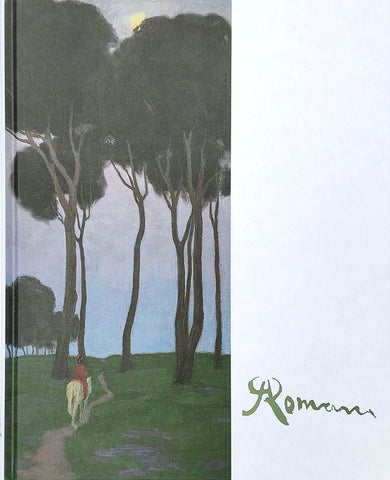
While not being among the most prominent words of the old generation, Aleksandrs Romans (1878–1911) is a painter who has created works that sometimes come to the fore, describing a significant phenomenon in the history of our art. Namely, the cover of the books on the age of Symbolism in Latvian art is decorated with his painting “Landscape with a Rider” (1910).

No less popular is the diploma work "The Day of Consecration" (1904), and Aleksandrs Romans' "Smiling Girl" (1904) is never forgotten in all his reflections on the portrait in our art. However, we are only waiting for an extensive study now. Edvarda Šmite, an erudite, experienced and tireless art historian, has once again accomplished another "impossible mission."

The artist Aleksandrs Romans left, living for thirty-three years. Only thirty-three. After completing seven years of study (1904), he was given another 6 years to find his way in art while earning a living. The two world wars and the occupation of Latvia have not been favorable for the preservation of the artist's works and memory. Their correspondence is often used to create biographies of artists, there are no letters from Aleksandrs Romans. None. We can only mention whether he did not like to write them or whether they died. And we have no word of what Aleksandrs Romans said about himself and his life. We can find the reference only in a few letters and memories of our closest friends.
Edvarda Šmite

By collecting the pieces of information together in various archives and periodicals, the art historian Edvarda Šmite has created a rich and interesting insight into the artist's life, its challenges and achievements. The possible sources that testify to Aleksandrs Romans' works have been found, which were unknown, and the result is a material that allows you to create a rich and convincing insight into the artist's creative heritage.

Only by seeing the full picture of the creative endeavors of the age can we truly appreciate its peaks. Aleksandrs Roman's work is significant in the 19th and 20th centuries. The study dedicated to him is an important and significant testament to the aspirations, situation and achievements of this and its new generation of artists.